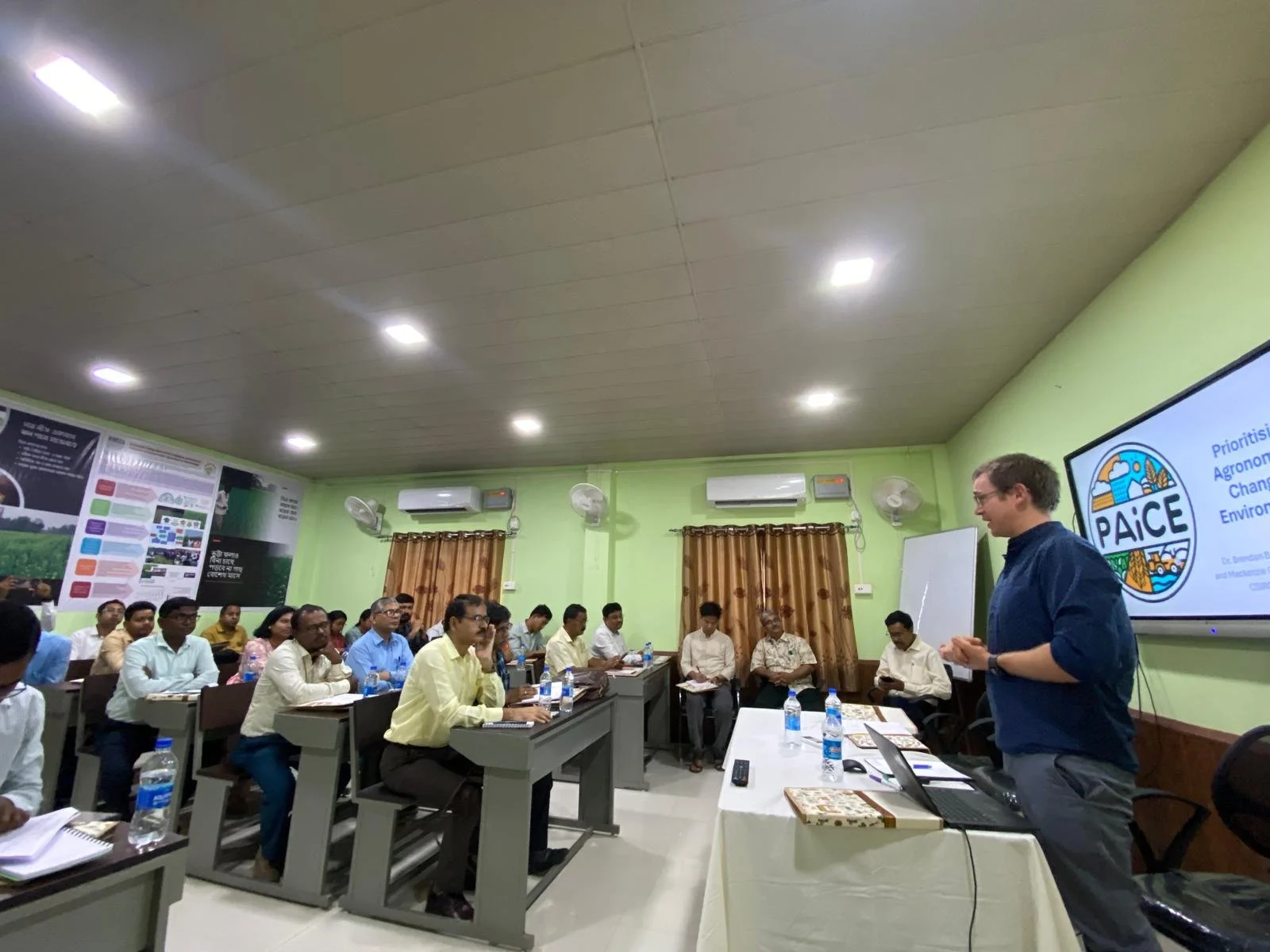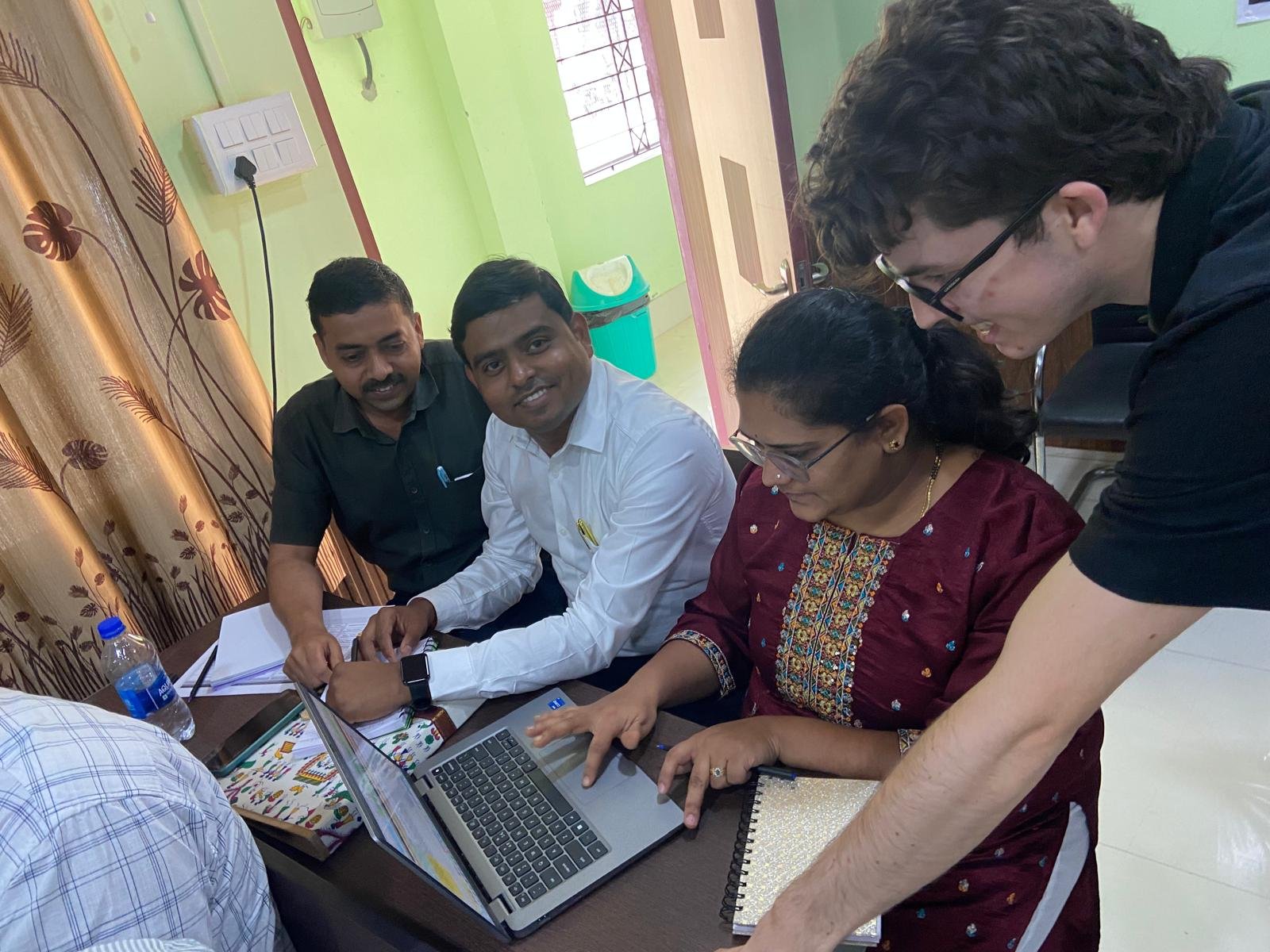PAiCE South Asia workshops reporting – Rupantar
Supported by the Crawford Fund, two Prioritising Agronomy in Changing Environments (PAiCE) workshops were run from 1–3 April at the Uttar Banga Krishi Vishwavidyalaya campus in Cooch Behar, West Bengal, India, and from 7–9 April at Hotel Himalaya, Kathmandu, Nepal. Across both events, a total of 48 participants attended, representing a diverse range of institutions including government agencies, universities, NGOs, and CGIAR centres.
The primary objective was to build the capacity of participants in data driven climate adaptation policy and programming via two PAiCE workshops, as well as provide participants with tangible outputs from these sessions to take back to their work environments.
PAiCE is designed to guide agronomic adaptation by supporting investment decisions and facilitating coordinated action through the development of adaptation roadmaps. The framework offers a structured, participatory approach for stakeholders to collaboratively identify and prioritise adaptation options that respond to both current production constraints and future climate-related challenges. Importantly, it also helps to identify key knowledge gaps and areas of uncertainty. By incorporating expert elicitation through stakeholder consultations, PAiCE fosters the exploration of targeted, region-specific agronomic solutions. The tool’s collaborative nature enables the integration of diverse perspectives, contributing to a more holistic, systems-level understanding of challenges and opportunities.
Both three-day workshops were structured as follows:
• Day 1 focused on compiling preliminary tool inputs to characterise local agricultural systems and assess the economic impacts of key production and climate-related constraints.
• Days 2 and 3 involved evaluating a range of adaptation options to enhance system productivity and resilience.
The primary output of the workshops is a comparative assessment of agronomic strategies based on their social, environmental, and economic impacts.
A critical goal of the training was to enable participants to conduct subsequent locally facilitated workshops, allowing them to refine adaptation outcomes by addressing evidence gaps and uncertainties. As local data availability improves, the use of the PAiCE tool is expected to yield increasingly accurate and context-specific insights.
The workshops in Kathmandu and Cooch Behar adopted a collaborative, participatory approach. Participants jointly characterised local agricultural production systems, identified key constraints and climate challenges, and engaged in the assessment and prioritisation of adaptation strategies. The group-based format enabled the expression of diverse viewpoints, fostering peer-tested consensus. Facilitating these discussions not only yielded richer insights but also helped participants gain a deeper, context-specific understanding of the issues faced in their regions. Small-group exercises encouraged active engagement and strengthened participants’ ability to apply these tools in their own organisational or regional contexts.
This participatory process enhanced the sense of ownership over the outputs and provided unique value beyond individual learning. The data-driven prioritisation of local agricultural constraints and proposed solutions generated credible outputs that can support future funding decisions, program development, and policy engagement. The collaborative nature of the workshops also lends legitimacy to the results, increasing their potential utility in national or regional adaptation programming and grant applications.
To support the sustainability of these efforts, additional training materials were developed and distributed. These included a module-by-module instruction manual and video-based guides to help facilitate future workshops independently. These resources are living documents and will continue to be updated and shared with participants.
Simply engaging with the PAiCE and ADOPT tools helped participants build awareness of structured adaptation planning methods. Dedicated plenary sessions were included to explicitly cover how future workshops could be run, with guidance tailored to specific organisational or system-level priorities.


